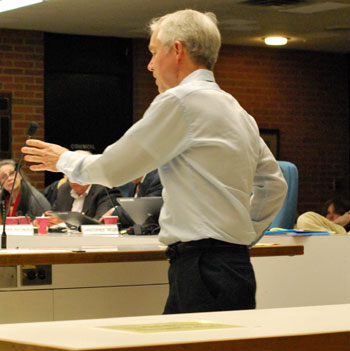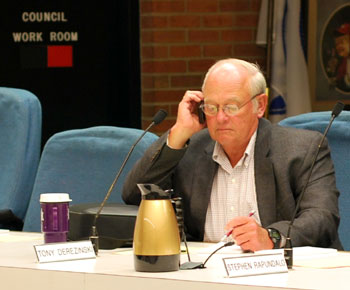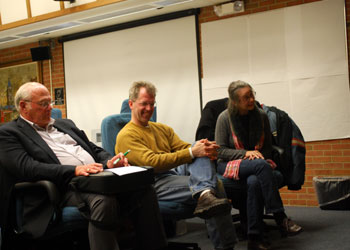To Do: Bicycle Registry, Transit Station
Ann Arbor City Council meeting (March 1, 2010) Part 2: Editor’s note: The major themes of the council meeting – the 3% budget directive, a ban on use of cell phones while driving, and a planned unit development called The Moravian – are covered in Part 1 of the March 1, 2010 meeting meeting report.

Larry Deck, board member of the Washtenaw Bicycling and Walking Coalition, addressed the council during the public hearing on the repeal of the city's bicycle registration system. (Photos by the writer.)
The council scrapped the city’s existing bicycle registration program at its Monday night meeting, but gave an assurance to a representative of the Washtenaw Bicycling and Walking Coalition that it would soon be replaced with something better.
Mayor John Hieftje used his communications time to rebut criticism of the planned Fuller Road Station – both with respect to its funding and its siting. While he assured critics that funding for the project would not come from the general fund, he allowed that he did not know how the project would be paid for.
And Christopher Taylor (Ward 3) reiterated enthusiasm for Ann Arbor’s response to a request for information by Google about a local fiber-optic network. He had also introduced the topic at a recent council meeting focusing on the budget.
The city administrator’s report to the council included updates on construction projects.
The city also continued a monthly recognition of its parks volunteers with a mayoral proclamation honoring Praveena and Madhan Ramaswami for their efforts to improve Bromley Park by organizing biannual events to remove invasive plants, plant flowers, and clean up the park. [Full Story]






